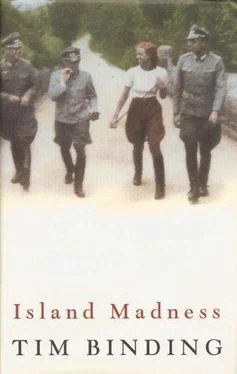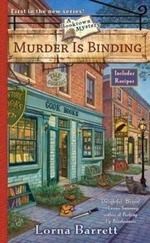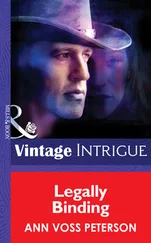“No, no,” he pleaded. “I was just thinking. If you could keep still for an hour I would like to paint you as you are now.”
“What?” She smacked him playfully on the arm. “Where would you hang it? In the front room for all your friends to gawk at or up here where Albert would have to dust it every day? I know. You could give it to my aunt. She likes a good picture. You could tell her which bit you like painting the best. My feet. My hands. This.” She bent down and placed her breast in between his lips. Lentsch felt her desire harden in his mouth.
“But quietly,” he insisted, holding still her hips. “Just in case.”
“Oh, I forgot. Mustn’t awake Auntie from her afternoon nap.” She giggled and stretching up had proceeded to give voice to her indiscretion until he too became enveloped in its untroubled and careless cry.
Lentsch snapped back to the question.
“Ernst? No. He would not wish to anger her father.”
“And Bohde?”
Lentsch shook his head. “He would not want to anger me.”
“What if her father had been mixed up in it? What if he and Ernst and Bohde had all tried to make her do something and it had all got a bit out of hand?”
Lentsch pulled at the blind again. The garden was quite empty now, save for the solitary tripod.
“His own daughter?”
“It has been known,” Ned told him, “fathers offering their daughters up to friends, fathers taking daughters for themselves. Happens all the time here. Maybe there’s more to what we’ve just seen than taking pictures. Maybe they tried to involve Isobel. Maybe she resisted.”
Downstairs the front door slammed.
“He’s leaving,” the Major announced.
Ned went to the window. Van Dielen was hurrying down the pathway with a bundie of papers under his arm. Ned felt tired. He wanted to go back to sleep, to walk round to Bernie’s house and get drunk.
“I understand his anguish,” the Major said, “but he should not do that. Not without permission first.”
“Not to worry,” Ned told him wearily. “I’ll post one of my men outside. He can take a statement from him when he gets back. Right now I should go and talk to Mrs Hallivand and find out what that coffee morning was all about. He wouldn’t mind me telephoning from here, would he, to see if she’s in?”
“He might not mind,” Lentsch agreed, “but there is no telephone at the Lodge. Why don’t you telephone your uncle at the Villa. He will know if she’s there.”
Lentsch dropped Ned at the Villa’s gateway.
“You will keep me informed of everything?” he said.
Ned leant against the car. The letter crackled in his pocket.
“Of course,” he said.
“Wedel will deliver a special pass this evening, permitting you to be out when you please, but not, you understand, exactly where. This is a personal favour. Do not abuse it.”
Wedel winked at him as he threw the car into a gravel-spitting turn. Ned straightened his hat and stepped up onto the lodge porch. This was where Uncle Albert and Auntie Rose had lived. In the summer Auntie Rose used to sit out on this veranda, a bowl of peas or runner beans in her lap and the saucepan by her feet, watching his cousin Kitty walking up and down the drive on the stilts his father had made. Now the porch was stacked with wood, a woman’s bicycle propped up against the railing. Ned knocked on the door with his knuckles. Albert appeared almost at once. His beret was a mite askew, Ned thought.
“Uncle!”
“Ned.”
“She’s in, then?”
“Aye. Wipe your feet. She don’t care for footmarks.”
Ned squeezed past Albert into the small passageway.
“I don’t remember it this cramped,” Ned whispered.
“It’s stuff from the house,” Albert told him. “The best bits are up in Kitty’s room. We moved them over the day before they came.”
He pointed to a closed door on his left.
“I was thinking. Perhaps I should come in with you. To make sure she’s all right.”
Ned felt proud of him. At least there were some who hadn’t forgotten how to look after each other.
“Not to worry,” he reassured him. “I’ll go carefully.”
His uncle was a stubborn man. “Her and I go back a long way, Ned,” he argued. “She might talk better with me by her side.”
“This has got to be official, Uncle. I can’t do it with you breathing over my shoulder.”
Albert sniffed. “As you wish,” he said. “Come up after, if you have the time.”
It was small room, cluttered with armchairs and lampshades and small tables. Above the fireplace hung a picture—a young woman, not simply naked but enjoying it. All this painting and photography, he thought, it’s just an excuse for hanky-panky. Mrs Hallivand sat by the window covered by a check rug, a large wicker basket at her feet. Ned wondered whether it still had the embroidered picture of the Major tucked in at the bottom. Though she looked tired her eyes were clear. There had been no floods of tears here, Ned reasoned, no wailings or tearing of hair. Isobel was dead and her aunt sat upright, patting the armrests of her chair, watching the nephew of her former gardener make his entrance. A cake stand stood next to her with a silver teapot on the top tier and a plate of biscuits on the lower. The sun had broken through outside but here it was dark, even though the curtains were drawn well back. Glancing out of the window Ned could see his uncle walking slowly up the drive. The fire was lit but there was no heat to it. The logs hissed, thick sap bubbling from green ends. Mrs Hallivand waved a hand in their bleak direction.
“Too young. They’ve had no time to weather. And how’s your mother?”
It was an enquiry born not out of concern, but designed to remind him who he was, and into what presence he had been admitted.
“Weak,” he said.
She nodded. “An affliction that has struck us all. I find the climb up from town quite exhausting these days. So.” She folded her hands neatly in her lap, settling in to the rhythm of the conversation. “You must know this little house quite well.”
“When I was younger, yes. Uncle Albert used to sit in that very chair.”
Mrs Hallivand squirmed. “Quite a change from my usual surroundings. Though I’ve grown used to it.” She lowered her voice.
“It took me quite a spell to dislodge your uncle’s aroma. I think he must sleep in those gardening clothes of his.”
“He’s of the old school, Mrs Hallivand,” Ned explained, prepared to indulge her a while longer. “Once it’s on there’s not much point in taking it off. Except Sundays, of course.”
“Ah. The power of religion.”
Ned shook his head. “Bowls.”
Mrs Hallivand smiled indulgently at Ned’s joke and turned the biscuit plate ninety degrees. Digestives, those square iced ones Dad had liked so much and two Bourbons. Ned had not seen a chocolate Bourbon for three years. Quiet settled on the room. He felt obliged to offer up the statutory enquiry.
“And your husband, Mrs Hallivand? Have you heard from him at all?”
It was a dangerous question to ask on the island, had they heard from their relatives, akin to asking a hospital patient the state of their health. However, Ned could tell Mrs Hallivand wished he had not been so formally polite.
“Not from him, no. About him, yes.”
“He is well, I hope.”
“He is safe. Whether he is well I have no idea, though I dare say he is.” She lifted a sugared biscuit from the plate and bit into it. Ned wondered whether he was going to be offered one. “However,” she continued, swallowing the morsel carefully, “you did not come here to enquire after my husband’s health. You want to know about…” She faltered.
“Isobel. Yes. A terrible business.”
Читать дальше












